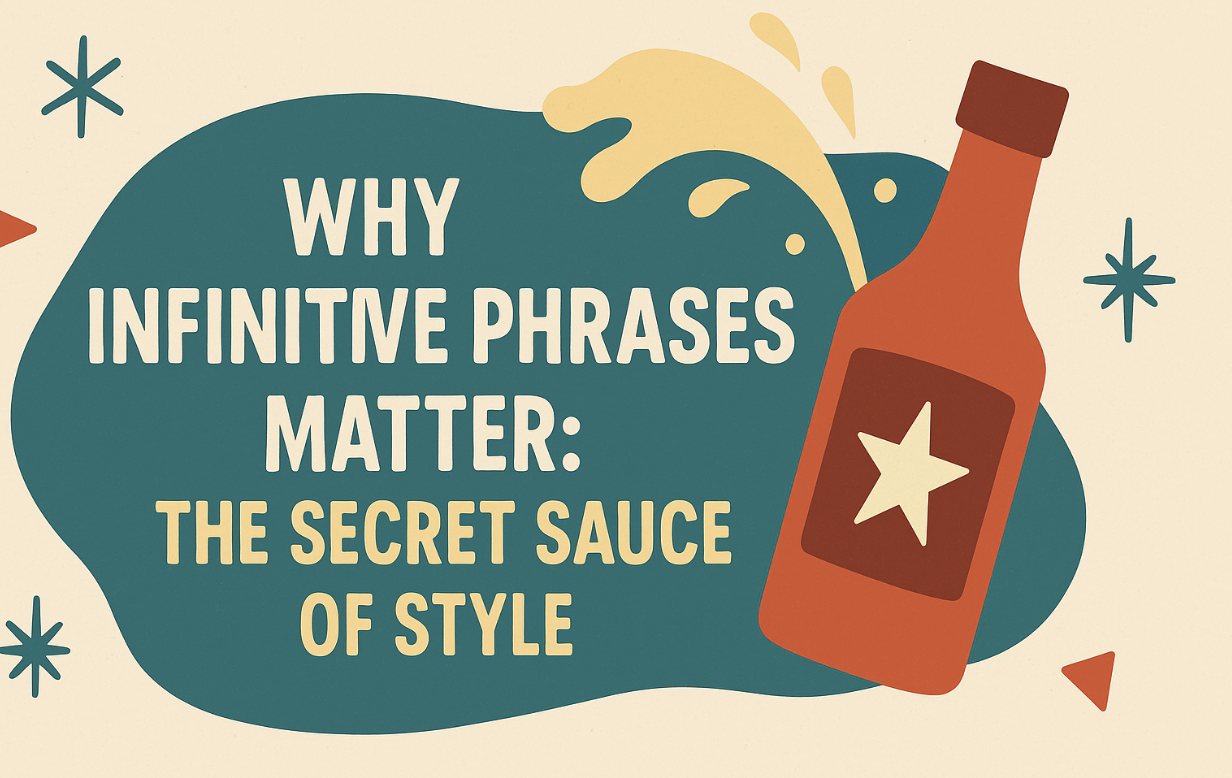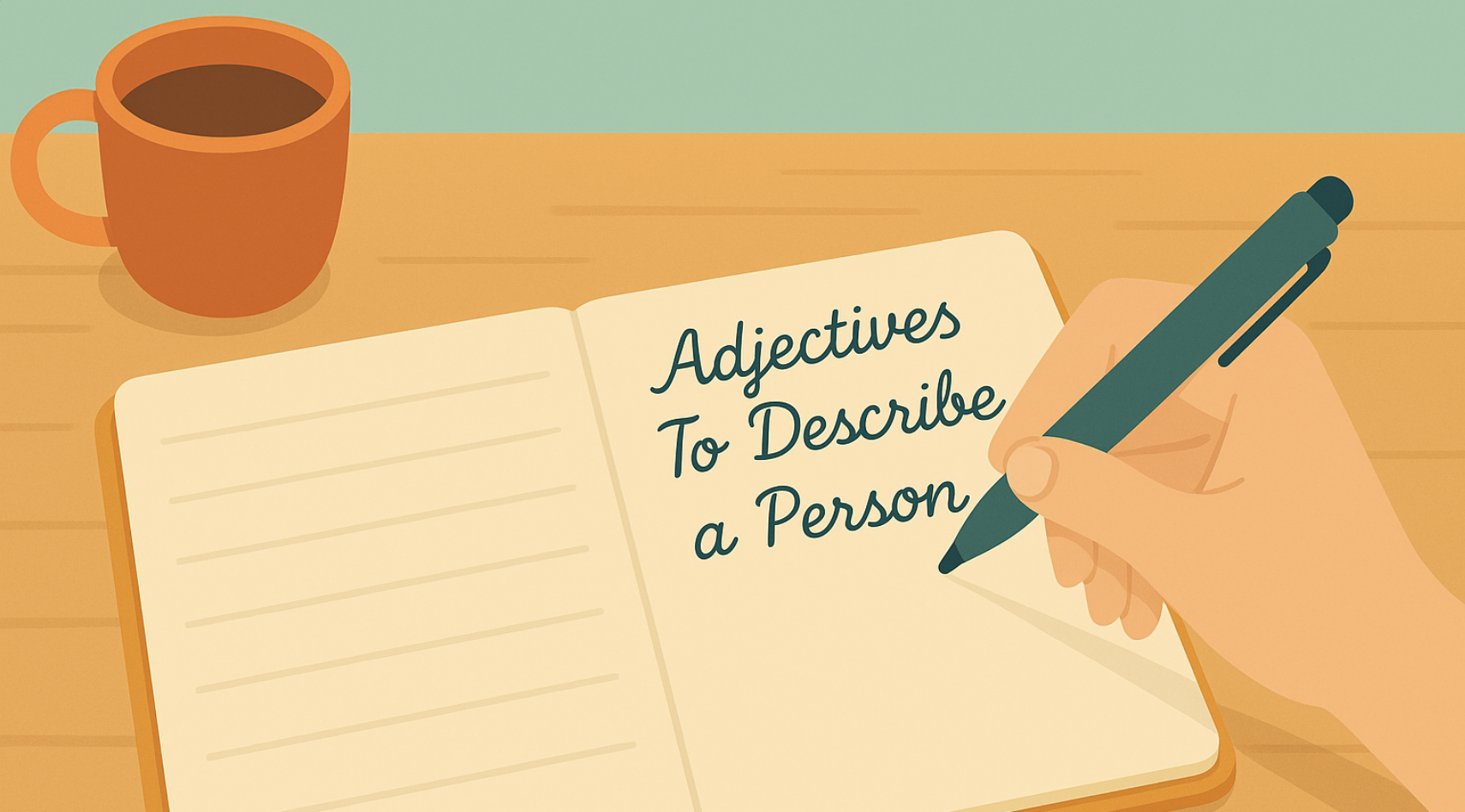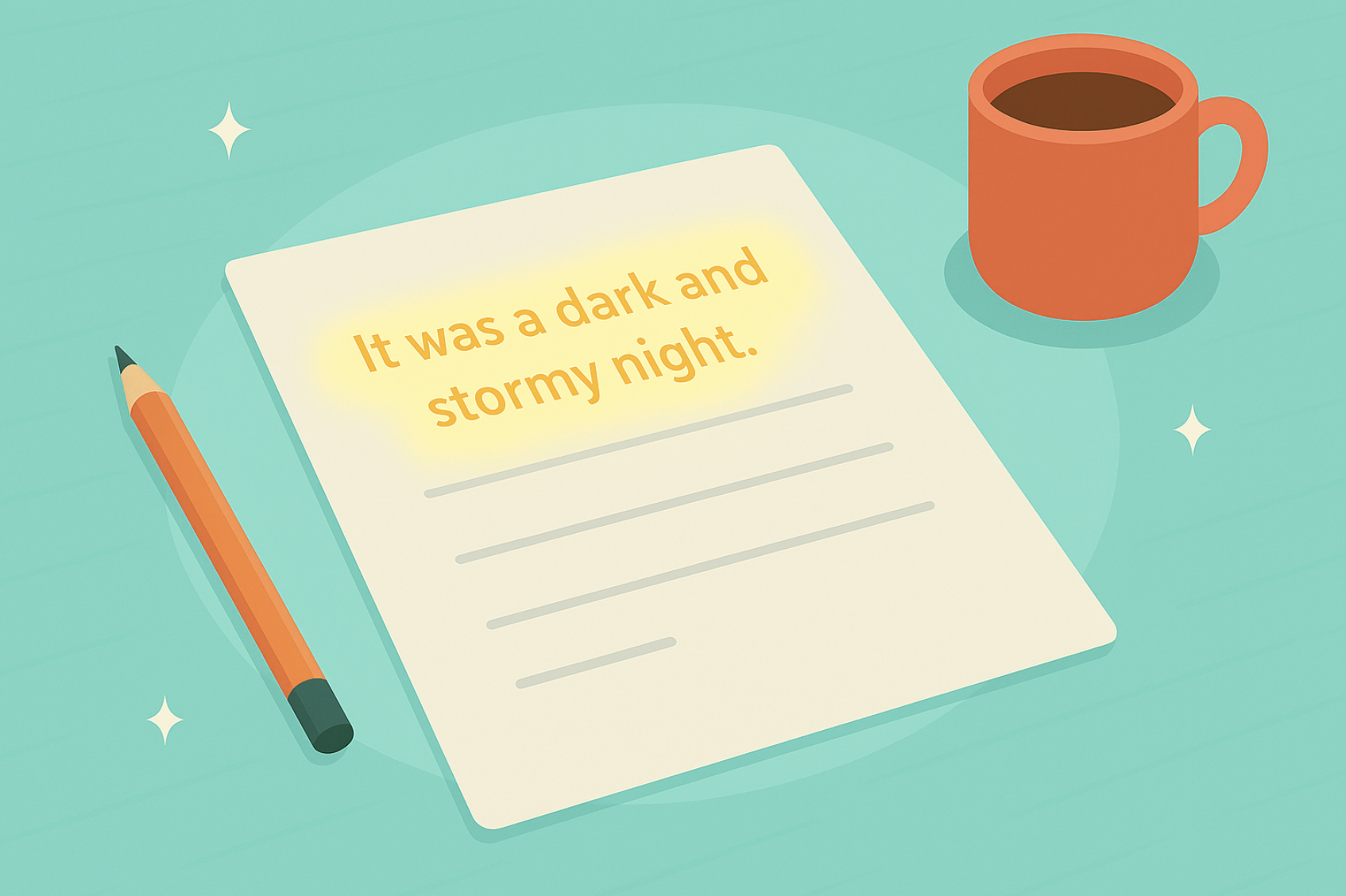To write, to read, to nap – infinitive phrases make everything sound a little more dramatic, don’t they? They’re like the black turtleneck of grammar: sleek, versatile, and oddly stylish no matter the context. But before we start swooning, let’s answer the obvious question: what is an infinitive phrase?
At its core, an infinitive phrase is simply the word to plus a verb, often dressed up with a few extras: objects, modifiers, or both. Think of it as a little grammar unit with big ambitions: to boldly go where no one has gone before isn’t just Star Trek flair; it’s a textbook example of an infinitive phrase doing its job with panache.
Why should writers care? Because infinitive phrases are more than just grammatical footnotes. They add precision when you want to clarify intention (to explain this better), style when you need a polished rhythm (to live is to learn), and flair when you’re aiming for something memorable (to err is human).
In this article, we’ll tackle the basics: the infinitive phrase definition, why it matters, how it works in sentences, and plenty of infinitive phrase examples to keep things lively. By the end, you’ll not only know what an infinitive phrase is, but you’ll also know how to wield it like a pro.
What Is an Infinitive Phrase? (Definition Without the Boring Bits)
Let’s start with the basics: the infinitive phrase definition is surprisingly simple. An infinitive phrase is just the word to followed by a verb – to dance, to sleep, to procrastinate – but often with a few stylish accessories thrown in. Those extras could be objects or modifiers that expand the meaning and give the phrase more personality.
Now, don’t confuse an infinitive with an infinitive phrase. A plain infinitive is a minimalist: to run. That’s it. No fuss, no frills. But an infinitive phrase is the maximalist cousin, happy to pile on details: to run through the park at dawn with a latte in hand. One is jogging. The other is a lifestyle choice.
To put it another way, infinitive phrases are like movie trailers: they hint at action and purpose while offering a little extra drama. Instead of just saying to eat, you get to eat three entire pizzas in one sitting without regret. See? The phrase tells a fuller, often funnier, story.
An infinitive phrase can include:
- The verb itself (to sing)
- Objects (to sing a song)
- Modifiers (to sing beautifully)
- Both objects and modifiers (to sing a song beautifully in the shower)
Infinitive phrases may be tiny, but they punch above their weight – giving sentences clarity, variety, and sometimes just the right dash of flair.
Your Publishing Journey Awaits – Start NowWhat Is a Infinitive Phrase vs. What Is an Infinitive Phrase? (Clearing the Grammar Fog)
If you’ve ever typed what is a infinitive phrase into Google, you’re not alone—and you’re also not grammatically correct. The proper form is what is an infinitive phrase. Why? Because “infinitive” starts with a vowel sound, and in English, vowels politely demand “an.”
So why the confusion? Blame two culprits: speed-typing and the sneaky little letter “i.” Our brains often default to “a” before words, especially when we’re not reading the word out loud. Add the pressure of trying to find an answer quickly, and suddenly half the internet is hunting for a infinitive phrase like it’s a lost treasure.
The takeaway? Grammar rules apply everywhere – even in search bars. (Sorry, Google won’t bend the rules for you.) But here’s the good news: whether you searched for what is a infinitive phrase or the correct what is an infinitive phrase, you’ve landed in the right place.
Infinitive Phrase Examples That Don’t Put You to Sleep
Enough theory – let’s bring infinitive phrases to life. Below are some infinitive phrase examples that prove grammar can be more than a dusty rulebook.
- To binge-watch an entire season in one night – The anthem of streaming culture. Not just to watch, but to binge-watch an entire season in one night tells you everything about the level of commitment (and regret).
- To boldly go where no one has gone before – Thank you, Star Trek. This is the poster child of infinitive phrases, showing intention, drama, and a tiny disregard for split infinitive purists.
- To eat three tacos before noon – Practical? Maybe. Ambitious? Definitely. Here the phrase explains a goal (possibly a life goal).
- To write a novel during lunch breaks – A literary example with a dash of reality. Many great stories start as infinitive phrases scribbled on napkins.
- To forget your ex’s birthday on purpose – Ah, intention meets sass. This phrase shows how infinitives can carry tone and attitude.
- To win the lottery without buying a ticket – Impossible, yes, but also proof that infinitive phrases can capture both hope and irony.
- To learn guitar at age seventy – Inspirational. Infinitive phrases aren’t bound by age; they capture ambition in its purest form.
Test Yourself
Spot the infinitive phrase in this sentence:
Her dream is to travel across Europe with nothing but a backpack and a good playlist.
(Answer: to travel across Europe with nothing but a backpack and a good playlist.)
See? Infinitive phrases sneak into everyday speech, stories, and even jokes. Once you notice them, you’ll see them everywhere – like hidden Easter eggs in the language.

Why Infinitive Phrases Matter: The Secret Sauce of Style
So far, we’ve covered the basics – but here’s the juicy part: why does the infinitive phrase actually matter? Because these little grammatical gems make your writing smoother, more expressive, and endlessly versatile.
In fiction, an infinitive phrase can create drama and purpose. Her greatest wish was to see the world before it burned sets up not just action but mood. In persuasive writing, it adds weight: to protect our oceans is to protect our future feels bigger, bolder, and harder to ignore. And in casual speech? Well, let’s be honest – to sound smarter than your coffee-fueled coworker during Monday meetings is sometimes all the motivation we need.
Infinitive phrases work like seasoning. Too little, and your writing feels flat. Too much, and it’s overwhelming. But sprinkled just right, they add rhythm, clarity, and style. They highlight intention (to persuade), possibility (to imagine), or even irony (to survive another family dinner without drama).
In short, infinitive phrases are the secret sauce: they tie sentences together with grace, sharpen your ideas, and occasionally make you look like the Shakespeare of Slack messages.
Infinitive Phrase Uses in Sentences (Spoiler: They’re Everywhere)
Infinitive phrases are grammar’s Swiss Army knife: compact, multipurpose, and surprisingly handy in almost any situation. They slip into sentences as nouns, adjectives, or adverbs, depending on what the writer needs. Let’s break it down.
1. Infinitive Phrases as Nouns
When acting as nouns, infinitive phrases can be the subject, the object, or the complement of a sentence.
- To err is human. (subject)
- Her dream is to dance on Broadway. (subject complement)
- He wants to win the championship. (object)
Here, the phrase isn’t just decorative, it’s doing the heavy lifting, naming the action or goal at the heart of the sentence.
2. Infinitive Phrases as Adjectives
Sometimes infinitive phrases play dress-up as adjectives, modifying nouns.
- She had a book to read.
- There’s nothing to fear.
In these cases, the phrase answers the question: what kind of book? what kind of nothing?
3. Infinitive Phrases as Adverbs
As adverbs, they explain why, how, or when.
- He paused to think. (explains why)
- She arrived early to get good seats. (explains purpose)
They act like backstory, giving context and intention to the main action.
4. Same Phrase, Different Roles
Consider this phrase: to finish the project.
- As a noun: To finish the project is his goal.
- As an adjective: He has a project to finish.
- As an adverb: He stayed late to finish the project.
Same words, three completely different jobs. That’s the beauty of the infinitive phrase, it adapts to the role you need, no questions asked.
Like the Swiss Army knife, infinitive phrases might seem small, but once you know how to use them, you’ll wonder how your writing ever survived without them.
Common Mistakes with Infinitive Phrases (And How to Dodge Them Gracefully)
Even with the clearest infinitive phrase definition in hand, writers still trip up. Here are three common pitfalls—and how to dodge them with style.
1. Splitting Infinitives
Ah yes, the infamous to boldly go. Technically, purists argue that the adverb should come after (to go boldly). But modern grammar allows a little flexibility, especially when the split adds punch. Fix? Don’t fear the split, but use it with intention. If it sounds smoother, keep it. If it sounds clunky, rearrange.
2. Overusing Infinitive Phrases
To explain this, to clarify that, to emphasize the other thing… Overload! Too many infinitives in a row make your prose read like a to-do list. Fix? Mix it up with other structures—gerunds, clauses, or plain verbs—so your writing doesn’t feel like it’s marching in lockstep.
3. Confusing Infinitives with Gerunds
A gerund is the -ing form of a verb (running, reading). Writers sometimes mix them up: He likes to swim vs. He likes swimming. Both are correct, but they’re not the same. Fix? Remember: infinitives highlight intention (to win the race), while gerunds show action as a concept (winning is hard).
Keep these in check, and your infinitive phrases will shine instead of stumble.

Bringing It All Together – Infinitive Inspiration
So there you have it: the infinitive phrase definition unpacked, its many uses revealed, and plenty of lively examples to keep you awake. From acting as nouns, adjectives, and adverbs to spicing up fiction, persuasion, and even small talk, infinitive phrases are grammar’s shape-shifters.
The real fun begins when you start spotting them in your own writing. Notice how they sneak into your sentences, carrying intention, style, and sometimes a wink of humor. Play with them – let them add rhythm, clarity, or even dramatic flair.
And remember: to master, to play, to conquer grammar, that’s your infinitive destiny.
What Is An Infinitive Phrase FAQ
Q: What is the difference between an infinitive and an infinitive phrase?
An infinitive is the simple form of a verb with to in front of it, like to run or to read. An infinitive phrase expands on that by adding objects or modifiers, such as to read a book quietly in the library.
Q: How do you split an infinitive?
A split infinitive happens when you insert a word (usually an adverb) between to and the verb. The famous example is to boldly go. While older grammar guides discouraged it, modern usage accepts split infinitives if they make the sentence clearer or more natural.
Q: What is the difference between an infinitive and a prepositional phrase?
An infinitive always begins with to + verb (to dance). A prepositional phrase begins with a preposition like in, on, at, by, or with (in the park, by the river). The key difference is that infinitives are verb-based, while prepositional phrases are noun-based.
Q: What are the rules of infinitives?
Always start with to + verb (to write).
They can function as nouns, adjectives, or adverbs.
Splitting them is allowed but should be intentional.
Don’t confuse them with gerunds (running vs. to run).
Q: What is the purpose of an infinitive phrase?
An infinitive phrase adds detail, intention, or purpose to a sentence. For example, She stayed late to finish the project explains the why. It makes writing more expressive and precise.
Q: How do you tell if a sentence is an infinitive?
Look for to + verb. If that verb phrase is acting as a noun, adjective, or adverb in the sentence, you’ve found an infinitive phrase. Example: To travel the world is his dream.








